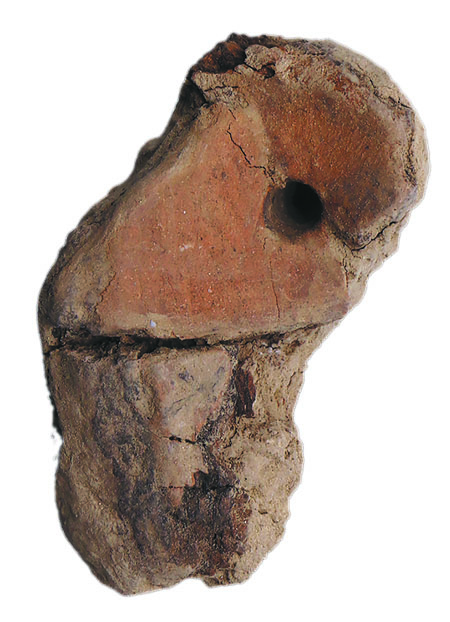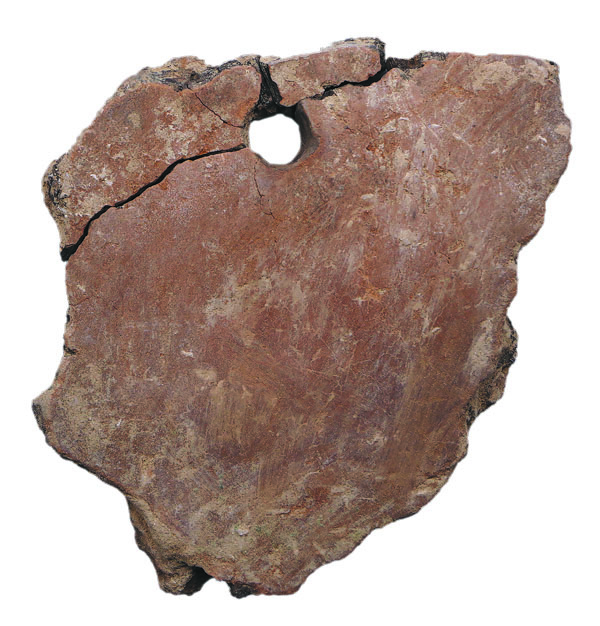

2. Zhaojiaxuyao site, Zibo, Shandong province, from 15,000 to 11,000 years ago
The discovery of this site came as a surprise to archaeologists who were then in the process of unearthing a tomb believed to be dated between the Warring States Period (475-221 BC) and the Han Dynasty (206 BC-AD 220), in Linzi district of Zibo. The following excavations and studies revealed that it used to be a site of human activity in a much older time.
Specialists found the ruins of three fireplaces and, surrounding them, more than 1,000 artifacts comprising mostly animal bones. There were also fragments of pottery, and stone and clamshell products.
The discovery of the Zhaojiaxuyao site is recognized as a major finding, because of its significance to the study of the transitional period from the Paleolithic to Neolithic period in North China and even Northeastern Asia as a whole.
The fire pits and pottery have helped picture how people back then used fire, not only for survival, but also to create the surroundings of their camp which demonstrated a sense of territorial occupation. It suggests a change in the connection between the people and the land, whereby after gaining experience of adapting themselves to the rules of nature, people of the time were beginning to reform it. It was a point at which they were ready to build settlements and step forward toward agriculture.
